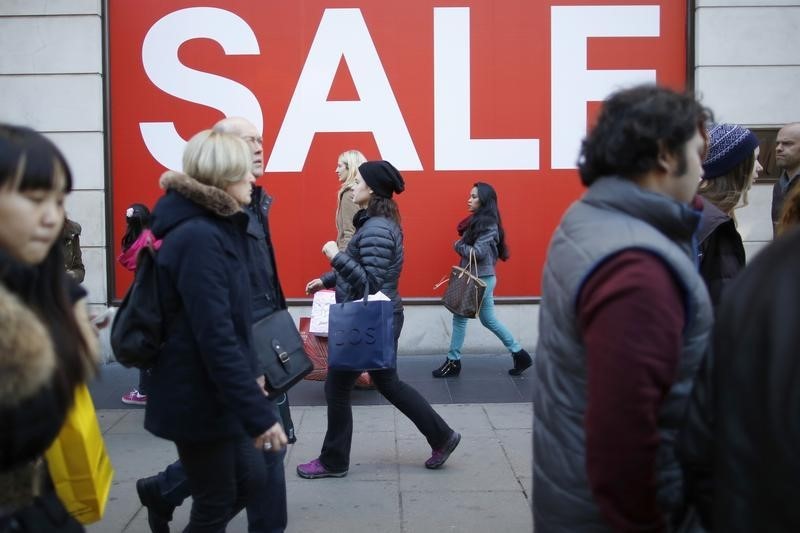By Geoffrey Smith
Investing.com -- U.K. retail sales fell for the third time in the last four months in March as the cost-of-living crisis weighed ever more heavily on consumer confidence.
Retail sales fell 1.4% from February, rather than the 0.3% drop expected, and February's data were also revised down to show a drop of 0.5%, instead of the originally reported 0.3%. That left sales up only 0.9% on the year.
Core retail sales, which exclude sales of automobiles and fuel, fell by 1.1%, another negative surprise.
The data were marked by a further reversion to pre-pandemic spending habits, with food stores sales falling in seasonally adjusted terms for the fourth straight month as restrictions on pubs and restaurants were lifted.
The Office for National Statistics' Darren Morgan also said that soaring fuel costs had appeared to have an increasing impact on spending patterns, seeing evidence that people had reduced the number of non-essential journeys they took. Fuel sales fell 3.8% on the month. Inflation hit a 30-year high of 7.0% in the U.K. in March, due in large measure to fuel prices and their pass-through into other areas of the economy.
Only hours earlier, market research group GfK reported that consumer confidence in the U.K. fell to its lowest since 2009 in April.
"The cost crunch is really hitting the pockets of UK consumers and the headline confidence score has dropped to a near historic low," said GfK Client Strategy Director Joe Staton. "The scores looking at the next 12 months for our personal finances at -26 and the general economy at -55 are worse than the 2008 financial crash."
Staton also said that Britons' estimate of their own household finances was worse now than during the initial COVID shock of 2020, a time of generous government subsidies to household incomes.
"When rising inflation and interest rates meet low growth and declining incomes, consumers will understandably be extremely cautious about any spending," Staton said. "With little prospect of any economic relief on the horizon we can only forecast further falls in the Index for the year ahead.”
GfK's index fell to -38 from -31 in March.
